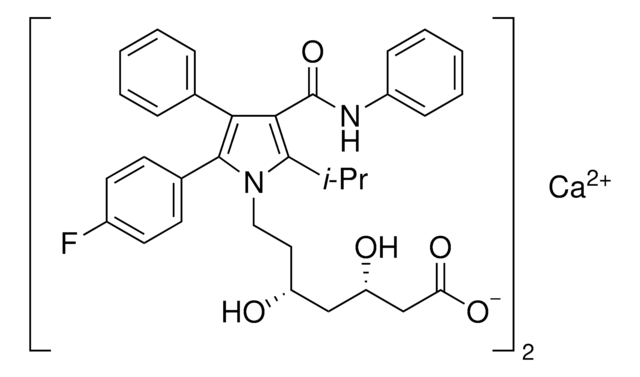30-0930
Tetrahydrofuran
≥99.7% (GC), contains no stabilizer, suitable for HPLC
Synonym(s):
THF, Butylene oxide, Oxolane, Tetramethylene oxide
Select a Size
Select a Size
About This Item
143 mmHg ( 20 °C)
Recommended Products
Product Name
Tetrahydrofuran, suitable for HPLC, contains no stabilizer
grade
HPLC grade
vapor density
2.5 (vs air)
vapor pressure
114 mmHg ( 15 °C)
143 mmHg ( 20 °C)
assay
≥99.7% (GC)
form
liquid
autoignition temp.
610 °F
does not contain
stabilizer
expl. lim.
1.8-11.8 %
availability
available only in Japan
Looking for similar products? Visit Product Comparison Guide
application
- Complexation and disproportionation of group 4 metal (alkoxy) halides with phosphine oxides.: This research utilizes tetrahydrofuran (THF) as a solvent to study the complexation and disproportionation reactions of group 4 metal halides, providing insights into coordination chemistry and potential applications in materials science (Seno et al., 2024).
- Synthesis of Room Temperature Curable Polymer Binder Mixed with Polymethyl Methacrylate and Urethane Acrylate for High-Strength and Improved Transparency.: THF is used as a solvent in the synthesis of advanced polymer binders, highlighting its role in developing materials with enhanced mechanical properties and optical clarity for industrial applications (Lee et al., 2024).
- Fabrication of Polypyrrole Hollow Nanospheres by Hard-Template Method for Supercapacitor Electrode Material.: This study employs THF in the fabrication process of polypyrrole nanospheres, demonstrating its importance in the production of high-performance supercapacitor electrode materials (Hong et al., 2024).
- Promoting Cross-Link Reaction of Polymers by the Matrix-Filler Interface Effect: Role of Coupling Agents and Intermediate Linkers.: The use of THF as a solvent facilitates the cross-linking reactions in polymers, enhancing their mechanical stability and expanding their applications in various fields of materials science (Huang et al., 2024).
- Solvent Regulation Induced Cathode Aggregation-Induced Electrochemiluminescence of Tetraphenylethylene Nanoaggregates for Ultrasensitive Zearalenone Analysis.: THF is critical in the solvent regulation process for electrochemiluminescence assays, significantly improving the sensitivity of analytical techniques for detecting environmental contaminants (Chen et al., 2024).
recommended
signalword
Danger
Hazard Classifications
Acute Tox. 4 Oral - Carc. 2 - Eye Irrit. 2 - Flam. Liq. 2 - STOT SE 3
target_organs
Central nervous system, Respiratory system
supp_hazards
Storage Class
3 - Flammable liquids
wgk_germany
WGK 1
flash_point_f
5.9 °F
flash_point_c
-14.5 °C
Choose from one of the most recent versions:
Already Own This Product?
Find documentation for the products that you have recently purchased in the Document Library.
Customers Also Viewed
Our team of scientists has experience in all areas of research including Life Science, Material Science, Chemical Synthesis, Chromatography, Analytical and many others.
Contact Technical Service




